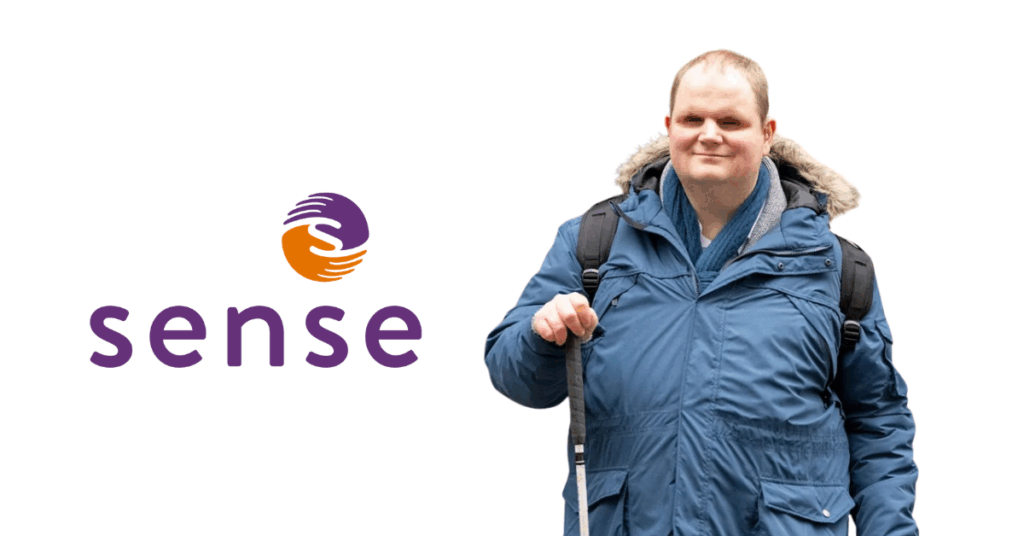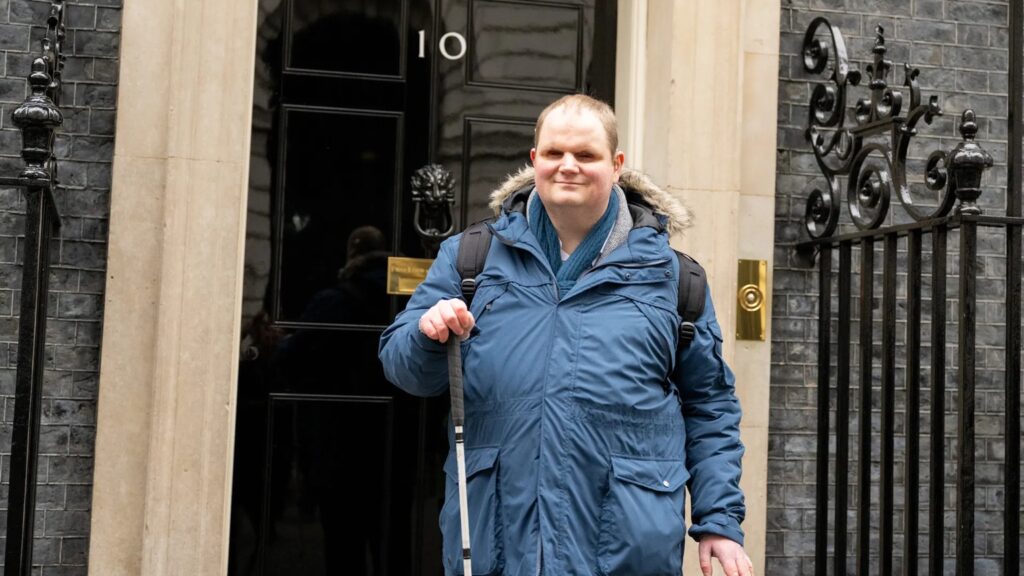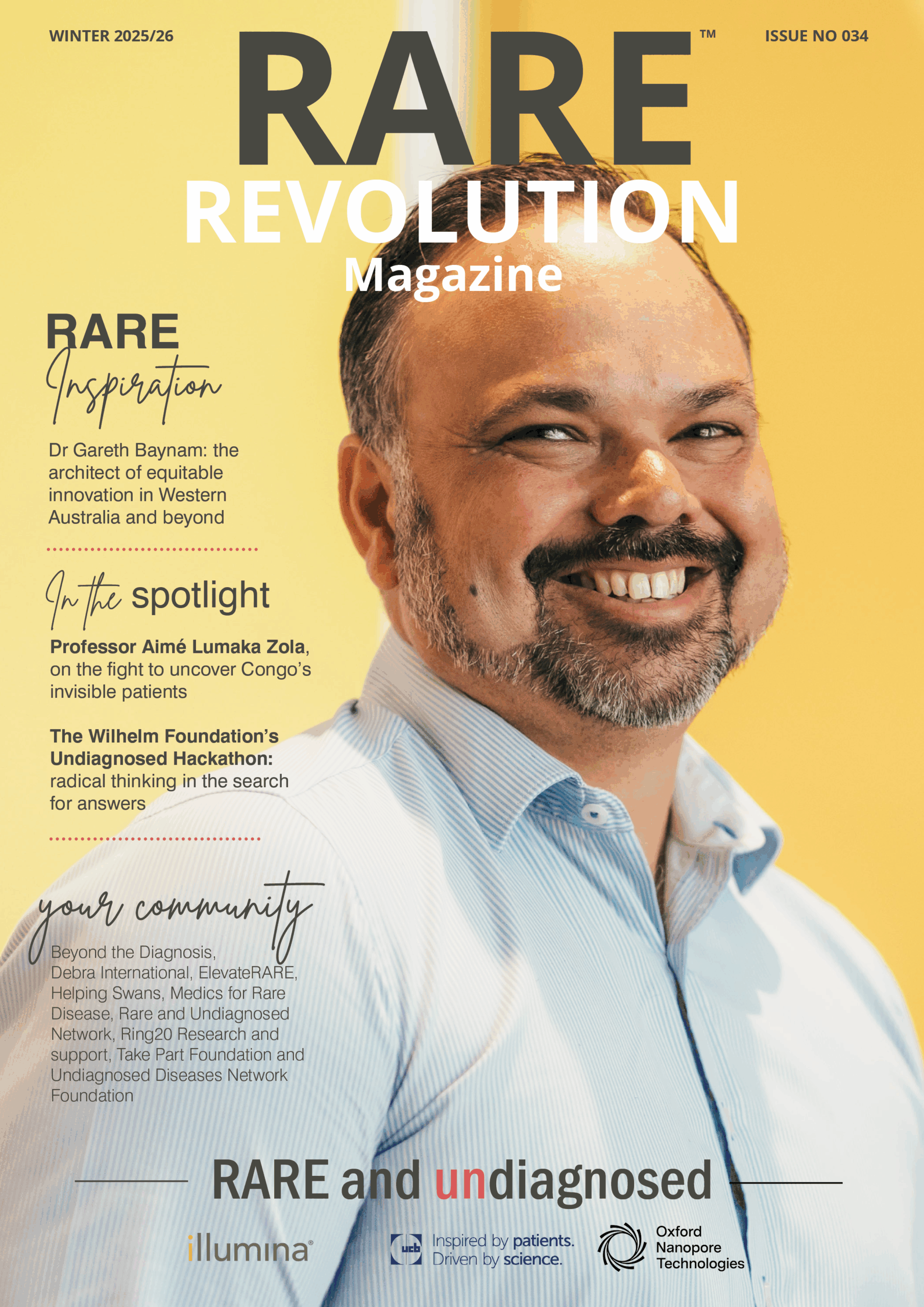Making a difference in the world as someone with a rare condition

Steven Morris works for the national disability charity Sense as its campaigns officer. He has Norrie Disease, a rare condition which causes deafblindness. Steven discusses ways to make a positive difference in the world to help lessen feelings of isolation and foster a sense of independence
By Steven Morris, campaigns officer, Sense
When you have a rare condition, it can feel like you don’t have as much control over your life and the world as other people. If, like me, your condition impacts your ability to navigate independently or communicate easily, this can quickly lead to isolation and feeling cut off from the world. Having to go to hospital, undergo lots of tests and navigate medical bureaucracy can also make you feel quite powerless at times.
That’s why I’m so passionate about people with rare diseases having opportunities to make a difference. Whether that’s through volunteering or campaigning, this can boost your self-esteem and give you a sense of autonomy.
Below I’ve listed some key ways you can make a difference in the world, as well as some suggestions, from me, on how to find a way to do this that could work for you.
Volunteering
There are so many benefits to volunteering. If you’re able to give your time, in return you can learn new skills, have opportunities to socialise and it has the feel-good factor of knowing you’re making a difference. However, a lot of volunteering isn’t very accessible to me. For example, because I’m deafblind, a lot of roles in a charity shop which require using certain technologies or being able to sort donations wouldn’t work for me.
Four years ago, I started volunteering with Sense’s Virtual Buddying service. This is a nationwide scheme to match disabled people with volunteer buddies, who chat to them for an hour a week over video call or on the phone. This is perfect for me as I can volunteer from home, the timing is flexible, and the coordinators understand my accessibility needs.
After a couple of years, I also asked if I could have a volunteer buddy. I love being part of something where I can both benefit from and give to a scheme. I think it really shows that Virtual Buddying isn’t a one-way street, but something we can all contribute to.
There are so many ways to volunteer—including options you’ve probably never even thought of. Most large charities have a section on their website with all their opportunities, or you can visit your local volunteering centre to see what’s in your area.
Campaigning
Campaigning is all about raising awareness of an issue and pushing people with the power to make decisions and take action on it. Many people with rare conditions are already campaigners without even realising it.
When people think of campaigning, often they think of people with placards going on a march. But that’s just one way of campaigning—there’s a lot more out there.
One way to campaign is to tell decision-makers what the issue is and what needs to change. This could be your MP (Member of Parliament), your local council, your NHS trust or your university, to give some examples. An email doesn’t have to be too long or perfectly written to have an impact, but it should be clear on what exactly you are asking them to change. Many charities and campaigning groups will also have templates available for writing to your MP on key issues.

Social media can also be a good way to find other campaigners and raise awareness of an issue. For example, when the UK Government announced its plans to cut disability benefits, campaigners used the hashtag #TakingThePIP on social media to share how they would be impacted by losing PIP (personal independence payment), and find other campaigners. This created an online community of activists working towards a common goal.
Telling your story
Sharing your story is a highly effective way to help change the world for the better. It’s a way of helping other people who share your condition feel less alone. It can give hope to parents of children who are grappling with a new diagnosis to see all the positive things that can still lie ahead for their child, and be prepared for challenges which might come up.
I also know from experience that decision-makers, like MPs, listen most when they’re hearing a story from someone with lived experience of an issue.
There are lots of ways to tell your story. You could contact a charity or title like RARE Revolution about publishing a blog sharing your experiences, use social media to make posts to educate about your condition, or contact your local news outlets to share your story. Charities can also help put you in touch with the news if that’s something you’re interested in.
Sometimes there can be negative comments when you share your story, and that’s something you should prepare for. For example, when I talked to the media about my difficulties getting accessible tickets to see Oasis as a disabled fan, people wrote ignorant comments questioning why a deafblind person would even go to a concert. However, it’s important to keep things in perspective and know that for every negative comment I got, hundreds of people will have seen my story and learnt something beneficial from it.
Making a difference when you have a rare condition is not only possible, it’s also powerful. Whether you’re volunteering in a way that works for you, raising your voice through campaigning, or bravely sharing your story, you are helping to build a world that’s more understanding, inclusive and fair.


